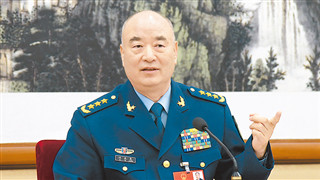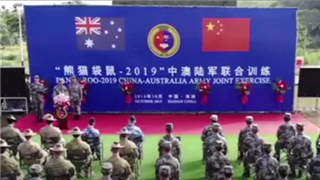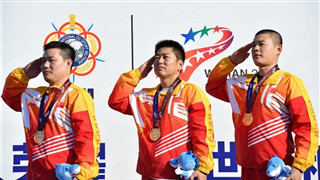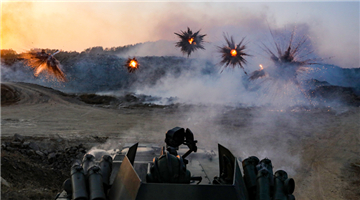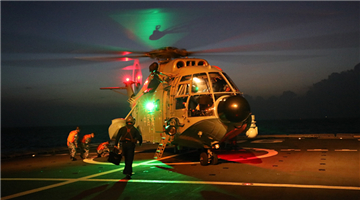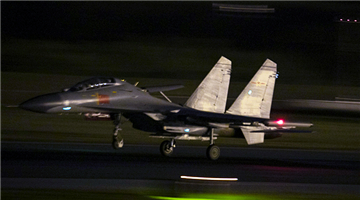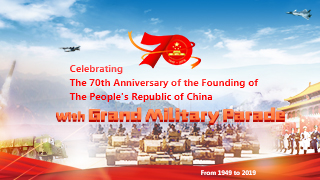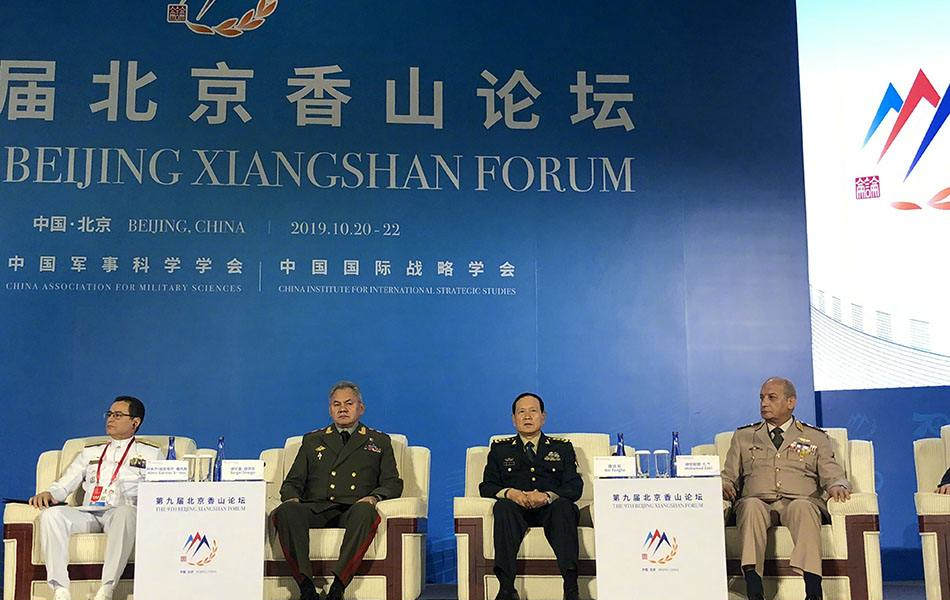
By Ou Xiang, Wang Di and Xu Lin
BEIJING, Oct. 21 (Chinamil) -- The 9th Beijing Xiangshan Forum is held at Beijing International Convention Center from October 20 to 22, attracting extensive attention from all countries to this track-1.5 high-level defense and security dialogue platform. Over 600 delegates from 76 countries attend the forum, including twenty-three defense ministers, six top military leaders (national defense army commanders), eight representatives of international organizations, and other experts and scholars.
Co-hosted by China Association for Military Science (CAMS) and China Institute for International Strategic Studies (CIISS), this year’s Xiangshan Forum, under the theme of "Maintaining International Order and Promoting Peace in the Asia-Pacific”, will discuss four topics, namely “major-country relation and international order”, “security risk management and control in the Asia Pacific”, “interests and common security of medium and small countries”, and “international arms control system and global stability”. Eight panel discussions are arranged, at which the delegates will hold academic discussions on eight subjects of global concern.
The first subject is innovation of security concept. International security situation has seen obvious changes in recent years. Global security order is “fragmented”, with the concept of global security governance being shaken, its mechanism undermined and its goal hard to achieve. In face of the security dilemma and governance difficulty, the international community has put forth many new concepts for building a world of lasting peace and universal security.
The second subject is creating the mutual trust mechanism. The world is going through massive changes and the value of strategic mutual trust is worth special attention. While there isn’t sufficient strategic mutual trust, putting in place trust-building measures is very important for preventing misinterpretation and misjudgment and maintaining regional stability. In today’s world, trust-building measures have become more and more important to the reduction of unexpected military conflicts among countries.
The third subject is Asian-Pacific security architecture. An important reason why the Asia Pacific boasts the greatest development vitality and potential in the world is that it has maintained a peaceful and stable security environment for a long time. There are a number of security mechanisms in the region nowadays, each with different members and functions, and some of them are outdated and have to be adjusted and perfected urgently. The key to ensuring lasting peace and order in the Asian-Pacific region is building a futuristic security architecture that suits the regional conditions and meets the demands of all concerned parties.
The fourth subject is maritime security. Maritime security is an important part of common security for mankind and a crucial area that forges international cooperation and promotes common development. The international community has to comprehensively analyze the new situation in maritime security, and discuss new paths of jointly coping with maritime security challenges, promoting maritime security cooperation and building a global and regional maritime community with a shared future.
The fifth subject is international anti-terror cooperation. International cooperation in this field has made some progress in recent years, weakening international terrorism through united efforts of the international community, but terrorist ideas remain widespread and various kinds of terrorist attacks keep taking place. As terrorism is a complicated issue that will continue to exist for a long time, all countries need to seek methods and paths of international anti-terror cooperation with a new strategic thinking.
The sixth subject is the new security situation in the Middle East. Since 2018, the geopolitical situation in the Middle East has been reshuffled at a faster pace with increasingly serious security situation. The falling apart of Iran nuclear treaty, the intense game in Syria by countries both inside and outside the region, and the attack of Saudi Arabia’s oil production facility have constantly shaken the security and stability in the Middle East and the sub-regions. Against such a background, it is necessary to conduct an in-depth analysis of the new security situation there, and align the Middle East policies of various parties in search for a way out for the region.
The seventh subject is science and technology innovation and international security. At present, science and technology innovation is making greater contributions day by day, with its influence spreading to political, economic, diplomatic, military and other fields. Science and technology are no longer indirect factors in international security, but have become direct, independent factors closely related with international security governance. With the globalization of scientific and technological R&D, it is necessary that delegates discuss the global distribution of scientific and technological resources, global R&D management, and their relation with national and international security.
The eighth subject is AI and future warfare. As a new empowering technology, AI has extensive application prospects in the military field and may trigger changes in combat approach and troop establishment and profoundly change the form of future warfare. The application of AI in the military and warfare will be the inevitable trend of scientific, technological and military reform. While boosting combat capability, AI is also bringing new risks and challenges to international security and peace, which is worth in-depth discussion.



